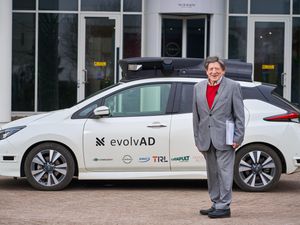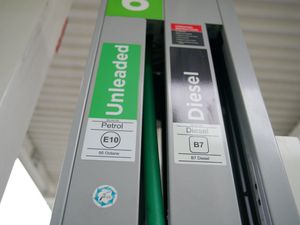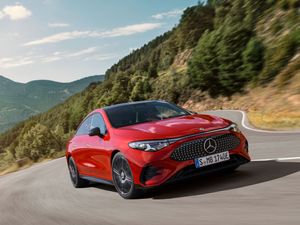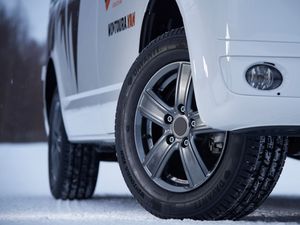Long-term report: The Skoda Karoq proves to be the ultimate long-distance car
Ted Welford has been putting the Karoq through some big mileage driving.
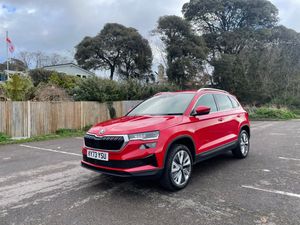
Spending a lot of hours behind the wheel of a car is usually the easiest way of exposing any problems, annoyances or things that a car could do better.
Some cars turn out to be pretty uncomfortable, whether that be through ride quality or unsupportive seats. Others have irritating safety features and might even prove to be inefficient when subjected to motorway speeds for hours on end.
Recently I’ve done a number of long-distance drives in my long-term Skoda Karoq and I’m happy to report that it’s one of those cars that only gets better after hours behind the wheel.

Being based in North Yorkshire and frequently travelling to in and around London, I quickly rack up miles. When you do regular journeys like this, I’ve often been under the impression that it’s still a diesel engine that would suit a mid-size SUV like the Karoq the best. But the turbocharged 1.5-litre petrol engine in KY73 YSU is remarkably well-rounded in this Skoda – little wonder it’s now used in so many Volkswagen Group cars these days, both big and small.
On the motorway it offers a perfect balance between performance and efficiency, providing plenty of pace for accelerating up slip roads and for overtakes, yet still comfortably returning 45mpg and upwards on an extended run. More locally, the 1.5-litre unit isn’t quite so efficient, not helped by the fact the sometimes dim-witted DSG gearbox forces you to push your foot to the floor to overcome the lag. It’s only really on steeper hills that you notice, though.
But I think I’d still choose this petrol engine for its refinement, as there’s none of that often tractor-like rumble that you get with four-cylinder diesels, and even at higher speeds it sits at fairly low revs.

I’ve also come to appreciate the Skoda Karoq’s safety assists, or in particular its lack of. Now, objectively this Skoda lags behind many of its rivals when it comes to driver assistance assistance, which in the eyes of safety organisation Euro NCAP would be a bad thing. But I’ve come to appreciate just how brilliant a car is without all these often-annoying features.
If you’ve ever driven a modern car with lane assist, it can be a nightmare down rural roads as it tugs the wheel, sometimes dangerously, to keep you in your lane, even if you’re likely avoiding a pothole or debris in the road.
Similarly, many brand-new cars now come with a feature that picks up speed signs and then bongs if you’re over the limit. Theoretically, it’s a good idea but they’re often poorly integrated, picking up the wrong road signs or screaming at you even if you dare go 1mph over the limit.

Many drivers often find such features so irritating to the point that they turn them off, but it’s something that is increasingly complex to do so, causing greater distraction for drivers. But the Karoq doesn’t have either of these, and is therefore so much easier and less annoying to drive. It’s worth mentioning ‘my’ Skoda still has the all-important autonomous emergency braking, as well as adaptive cruise control (a slightly costly £515 option), which are both great for taking the pain out of long journeys.
I’ll shortly be handing the keys back to the Karoq, but it’s perhaps the easiest long-termer I’ve ever run to recommend. Sure, it’s not one car that you aspire to own, but as a sensible family car you can buy knowing it will be an especially easy and reliable ownership prospect, you’ll struggle to do better than this brilliant Skoda.

